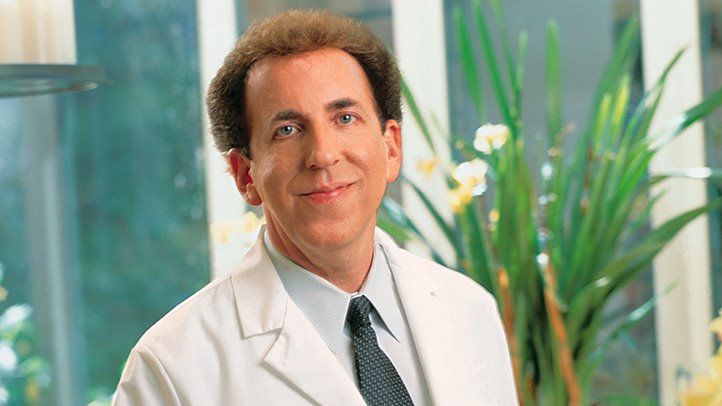More than two-thousand years ago Aristotle stated, “we are what we repeatedly do”, a profound insight that still holds true when it comes to the impact that repetitive behaviors have on lifestyle, and in turn, health. The rapidly growing demand for lifestyle interventions among patients seeking to make sustainable and healthy behavior changes has led to the emergence of an evidence-based practice called lifestyle medicine.
What is Lifestyle Medicine?
Lifestyle medicine (LM) is a medical approach that uses evidence-based behavioral interventions to prevent, treat, and manage chronic disease. Most chronic lifestyle related diseases (LRD) are preventable. Chronic disease and mental health conditions are leading causes of death and disability in the United States and are responsible for $3.4 trillion in annual health care expenditures.1 The Centers for Disease Control and Prevention (CDC) estimates that six in 10 Americans have at least one chronic disease and four in 10 have two or more chronic diseases.2
The European Lifestyle Medicine Organization states that to treat the causes of these chronic, lifestyle related diseases, and to be successful in prevention, a strong focus must be placed on lifestyle.3 The American College of Lifestyle Medicine (ACLM) defines Lifestyle Medicine as “the use of lifestyle interventions in the treatment and management of disease.” It continues that “such interventions include diet (nutrition), exercise, stress management, smoking cessation, and a variety of other non- drug modalities.”4 The goal and primary focus of Lifestyle Medicine is to promote healthier lives through beneficial environments and healthier lifestyle choices.
Key Pillars of Lifestyle Medicine
While the specific pillars for what comprise lifestyle medicine vary by institution, the primary tenets are consistent. According to the ACLM, the six pillars of lifestyle medicine include a whole-food, plant- predominant eating pattern, physical activity, restorative sleep, stress management, avoidance of risky substances and positive social connections. Dr. Dean Ornish, who has been studying lifestyle medicine for over 35 years summarizes the pillars by saying to “eat well, move more, stress less, love more.”5
The below table demonstrates important differences between lifestyle medicine and traditional western medicine6:
Differences between traditional/conventional and lifestyle medicine approaches in primary care
Traditional/Conventional medicine | Lifestyle Medicine |
Treats individual risk factors | Treats lifestyle causes |
Patient is a passive recipient of care | Patient is an active partner in care |
Patient is not required to make major changes | Patient is required to make major changes |
Treatment is often short term | Treatment is always long term |
Medication is often the ‘end’ treatment | Medication may be needed, but the emphasis is on lifestyle change |
Emphasizes diagnosis and prescription | Emphasizes motivation and compliance |
Goal is disease management | Goal is primary/secondary/tertiary prevention |
Less consideration of environment | More consideration of environment |
Side effects are balanced by benefits | Side effects that impact lifestyle require greater attention |
Involves other medical specialties | Involves allied health professionals |
Doctor generally operates independently, on a one-to-one basis | Doctor is part of a team of health professionals |
Research Review: How Lifestyle Medicine May Treat, Prevent, and Even Reverse Disease
As it stands today, there is an ever-growing body of research that demonstrates lifestyle medicine as an effective and economical tool for treating, preventing, and even reversing disease. Literature shows that conditions such as heart disease7, diabetes8, depression9 and some cancers10, 11, amongst many other lifestyle related diseases, can be effectively managed with lifestyle medicine.
It is suspected that prevention and treatment of illness occurs on a genetic level. However, research shows lifestyle changes significantly increase telomerase; the enzyme responsible for maintaining telomere length. Telomeres are the ends of chromosomes that influence how long we live.12 In addition, it has been shown that lifestyle changes can turn on health-promoting genes and turn off disease-promoting genes.13
The Role of Healthcare Professionals
As healthcare professionals it is our job to advocate healthy lifestyles to our patients. This means connecting with patients on a human level and speaking with them about their lives to better understand their daily habits, stressors, diet, sleep, movement, homelife. This ultimately helps patients strategize and problem-solve ways to manage and balance their lives, while making health a priority.
Erin Palinski-Wade RD, CDE, and Orgain Nutrition Advisory Board Member recommends the following stress-reduction tips to her clients:
- Practice belly breathing. The simple act of taking slow, controlled breathes in through your nose deep into the abdomen, holding for a few seconds, and then exhaling fully through pursed lips like you are whistling can instantly calm the body. These deep breathes can lower heart rate and reduce circulating stress hormones while helping you to feel relaxed and energized.
- Get moving. Physical activity can help to manage stress by releasing the feel-good chemical serotonin which can elevate mood. In addition, physical activity can support improved sleep, which further benefits stress levels.
- Make sleep a priority. When you get inadequate sleep, fatigue can cause a decline in mood which can exasperate stress. Prioritize sleep by scheduling a set sleep and awake time each night, removing distractions from the bedroom, and avoiding stimulating activities right before bed such as using electronics, performing vigorous exercise, or consuming excessive caffeine.
- Increase your intake of vitamin C. This antioxidant has been found to help reduce levels of circulating stress hormones in the blood. Add plenty of dark green leafy vegetables, tomatoes, peppers, and citrus fruits to ensure you are meeting your daily needs.
- Avoid skipping meals. When you skip meals, blood sugar can crash which can cause irritability and a poor mood…which only elevates feelings of stress. Instead, eating meals and snacks balanced in lean protein, fiber, and healthy fats can help to stabilize blood sugar (and mood) throughout the day. Keeping on-the-go options such as Orgain Clean Protein Shakes with 20 grams of quality protein on hand can be a great way to ensure balanced nutrition no matter how busy the day may get.
Implementing the Lifestyle Medicine Approach in Practice
Research shows the field of lifestyle medicine is growing rapidly as individuals and communities seek solutions to the hardship of chronic disease. Providers across various medical specialties and health professions are gaining certification in this field but struggling with implementation. Time constraints, concern about reimbursement, and lack of clinical experience in counseling patients are often cited as obstacles. There are new resources being created to address these issues and demonstrate how lifestyle medicine can be successfully practiced in standard primary care settings.14
The American Academy of Family Physicians has created a comprehensive guide “Incorporating Lifestyle Medicine into Everyday Family Practice: Implementation Guide and Resources” to help practitioners incorporate lifestyle medicine and better serve their patients.15 Elizabeth Motley, MD has come up with “A Model for Aspiring Lifestyle Medicine Practitioners” to build a lifestyle medicine care clinic and identified the following clear steps: Engage local community, utilize a primary certification, use lifestyle medicine intake form, teach simple concepts in the office, provide at-home learning activities, bill effectively, refer to health coaches and outside programs.16 As lifestyle medicine continues to improve health, cut healthcare costs and prove its effectiveness, it will continue to grow, as practitioners it will be important to advocate for lifestyle medicine amongst our peers and allied health professionals and implement this meaningful treatment with our patients.
Learn more with Orgain Healthcare!
For more science-based education on lifestyle medicine and the key pillars of health and wellness, tune in to episode 18 of The Good Clean Nutrition Podcast which features lifestyle medicine guru, Dr. Dean Ornish. For over 35 years, Dean Ornish, M.D., has been a leader in the field of lifestyle medicine. Dr. Ornish and his colleagues at the Preventive Medicine Research Institute (PMRI), have conducted research studies showing that changes in diet and lifestyle can make a powerful difference in our health and well-being, how quickly these changes may occur, and how dynamic these mechanisms can be.
Episode 18: Mind, Body, Community: The Connection between Relationships, Stress & Health with Dean Ornish, MD.
Listen Here >>

References:
- Centers for Disease Control and Prevention. Health and economic costs of chronic diseases. www.cdc.gov/chronicdisease/about/costs/index.htm
- Centers for Disease Control and Prevention. Chronic diseases in America. National Center for Chronic Disease Prevention and Health Promotion. Accessed April 2, 2021. www.cdc.gov/chronicdisease/ resources/infographic/chronic-diseases.htm
- What is lifestyle medicine? The European Lifestyle Medicine Organization. (n.d.). Retrieved September 19, 2022, from https://www.eulm.org/what-is-lifestyle-medicine
- American College of Lifestyle Medicine. (n.d.). Retrieved September 19, 2022, from https://lifestylemedicine.org/about-us/
- Ornish, D., & Ornish, A. (2019). Undo it!: How simple lifestyle changes can reverse most chronic diseases: Move more, eat well, stress less, Love more. Ballantine Books.
- Egger G, Binns A, Rossner S, editors. Lifestyle Medicine: Managing Disease of Lifestyle in the 21st Century. 2nd ed. McGraw-Hill Australia Pty Ltd; Noth Ryde: 2011. p. 5. https://www.ncbi.nlm.nih.gov/pmc/articles/PMC4390753/
- Ornish, D., Scherwitz, L. W., Billings, J. H., Brown, S. E., Gould, K. L., Merritt, T. A., Sparler, S., Armstrong, W. T., Ports, T. A., Kirkeeide, R. L., Hogeboom, C., & Brand, R. J. (1998). Intensive lifestyle changes for reversal of coronary heart disease. JAMA, 280(23), 2001–2007.
- Pischke, C. R., Weidner, G., Elliott-Eller, M., Scherwitz, L., Merritt-Worden, T. A., Marlin, R., Lipsenthal, L., Finkel, R., Saunders, D., McCormac, P., Scheer, J. M., Collins, R. E., Guarneri, E. M., & Ornish, D. (2006). Comparison of coronary risk factors and quality of life in coronary artery disease patients with versus without diabetes mellitus. The American journal of cardiology, 97(9), 1267–1273. https://doi.org/10.1016/j.amjcard.2005.11.051
- Pischke, C. R., Frenda, S., Ornish, D., & Weidner, G. (2010). Lifestyle changes are related to reductions in depression in persons with elevated coronary risk factors. Psychology & health, 25(9), 1077–1100. https://doi.org/10.1080/08870440903002986
- Orman, A., Johnson, D. L., Comander, A., & Brockton, N. (2020). Breast Cancer: A Lifestyle Medicine Approach. American journal of lifestyle medicine, 14(5), 483–494. https://doi.org/10.1177/1559827620913263
- Ornish, D., Weidner, G., Fair, W. R., Marlin, R., Pettengill, E. B., Raisin, C. J., Dunn-Emke, S., Crutchfield, L., Jacobs, F. N., Barnard, R. J., Aronson, W. J., McCormac, P., McKnight, D. J., Fein, J. D., Dnistrian, A. M., Weinstein, J., Ngo, T. H., Mendell, N. R., & Carroll, P. R. (2005). Intensive lifestyle changes may affect the progression of prostate cancer. The Journal of urology, 174(3), 1065–1070. https://doi.org/10.1097/01.ju.0000169487.49018.73
- Ornish, D., Lin, J., Daubenmier, J., Weidner, G., Epel, E., Kemp, C., Magbanua, M. J., Marlin, R., Yglecias, L., Carroll, P. R., & Blackburn, E. H. (2008). Increased telomerase activity and comprehensive lifestyle changes: a pilot study. The Lancet. Oncology, 9(11), 1048–1057. https://doi.org/10.1016/S1470-2045(08)70234-1
- Ornish, D., Magbanua, M. J., Weidner, G., Weinberg, V., Kemp, C., Green, C., Mattie, M. D., Marlin, R., Simko, J., Shinohara, K., Haqq, C. M., & Carroll, P. R. (2008). Changes in prostate gene expression in men undergoing an intensive nutrition and lifestyle intervention. Proceedings of the National Academy of Sciences of the United States of America, 105(24), 8369–8374. https://doi.org/10.1073/pnas.0803080105
- Freeman KJ, Grega ML, Friedman SM, Patel PM, Stout RW, Campbell TM, Tollefson ML, Lianov LS, Pauly KR, Pollard KJ, Karlsen MC. Lifestyle Medicine Reimbursement: A Proposal for Policy Priorities Informed by a Cross-Sectional Survey of Lifestyle Medicine Practitioners. International Journal of Environmental Research and Public Health. 2021; 18(21):11632. https://doi.org/10.3390/ijerph182111632
- Bonnet, J., Bharati, R., Vorbeck, L., Kovach, K., Harvey Mansfield, K., Polk, E., & Sayess, P. (2021). Incorporating lifestyle medicine into everyday family practice. Incorporating Lifestyle Medicine into Everyday Family Practice: implementation guide and resources. Retrieved from https://www.aafp.org/dam/AAFP/documents/patient_care/lifestyle-medicine/lifestyle- medicine-guide.pdf
- Motley E. (2020). Building a Thriving Lifestyle Medicine Practice Within a Primary Care Clinic: A Model for Aspiring Lifestyle Medicine Practitioners. American journal of lifestyle medicine, 14(2), 133–136. https://doi.org/10.1177/1559827620904868
New episodes of The Good Clean Nutrition Podcast are available!
Episode 18: Mind, Body, Community: The Connection between Relationships, Stress & Health with
Dean Ornish, MD

Motivated by research, lifestyle medicine is an evidence-based approach that targets modifiable behaviors to prevent, treat, and potentially reverse, chronic disease. In this episode of The Good Clean Nutrition Podcast, host Mary Purdy, MS, RDN is joined by Founder and President of the nonprofit Preventive Medicine Research Institute, Dr. Dean Ornish, to explore the undeniable impact of positive lifestyle changes to optimize health. Tune in as they discuss the key pillars of health, including importance of relationships and stress management, and Dr. Ornish’s revolutionary research proving that lifestyle changes can often reverse signs of aging and the progression of most chronic diseases.
With more healthcare professionals recommending Orgain to support the nutritional needs of their renal patients, we created this new downloadable document that identifies Orgain’s renal-friendly products.
The Orgain Renal-Friendly Products resource outlines important nutrients that patients with renal disease must be mindful of, including protein, potassium, sodium, and phosphorous, for many of our protein and meal powders, ready-to-drink shakes, and bars.
If you have any questions regarding Orgain’s renal-friendly products, email [email protected] or join the Orgain Healthcare Ambassador Collective private Facebook group to ask questions directly to our healthcare team members! Since this private social community is for Orgain’s Healthcare Ambassadors, be sure to request an account if you don’t have one already. We look forward to seeing you there!

Don’t miss Orgain’s next live webinar on October 27 at 2pm EST, Everything Your Clients Needs to Know About Intermittent Fasting, presented by Erin Palinski-Wade, RD, CDCES, CPT.
Intermittent fasting (IF) is incredibly popular, but is it the right fit for your client? This webinar will review the science behind IF including the potential benefits for health and body composition, along with identifying which clients may benefit from an IF style of eating and who should avoid it. Practical applications on how to implement IF into your client’s meal plan will be provided.
Whether on-demand or live, all the webinars in Orgain’s Professional Education Webinar Series are available for 1.0 CPEU for RDNs and NDTRs. Register Here

Many thanks to everyone who stopped by Orgain’s booth at FNCE®! It was great to connect in person again after a three year break due to the pandemic. We were humbled that The Academy of Nutrition and Dietetics approved us to be a Signature Sponsor, and as a result we experienced a level of engagement throughout the conference unlike any prior year!
If you weren’t able to attend FNCE® this year, see below for some of the most popular nutrition and health topics observed by the Orgain team and members of our Nutrition Advisory Board.
- Gut health with a focus on prebiotics, postbiotics and synbiotics, and the role of fiber and omega-3s in supporting digestive health
- Plant-based nutrition and its impact on menopause and metabolism
- The role of polyphenols and its health benefits
- Diabetes care & management, with practitioners seeking diabetes-friendly food and snack ideas for patients
- Food allergies, and allergy-friendly products for school-aged children
- The ongoing concern of malnutrition in the clinical setting
- Incorporating cultural nutrition preferences in counseling
- Advocacy for more BIPOC dietitians who could relate to patients of color who could better relate to and support patients of color and their cultural preferences, overall eating pattern, and ultimately their health.
- Sustainability and providing education on ways to maximize sustainability on a budget, and live more sustainably overall
- Desserts and snacks that satisfy a sweet tooth but also include functional ingredients and more nutritional benefits
- Whole food ingredients and using whole foods to support health and wellness
Do you have anything else to add? Share it in the Orgain Healthcare Ambassador Collective Private Group on Facebook!
And in case you missed it, we sponsored a culinary demo presented by Orgain’s nutrition advisor and sports dietitian, Kelly Jones, MS, RD, CSSD, featuring snack prep tips and easy, plant-protein-packed recipes featuring various Orgain products. See each recipe below on our Recipes by Professionals webpage!



